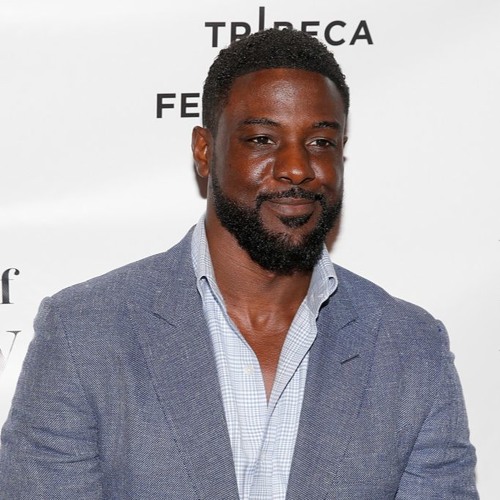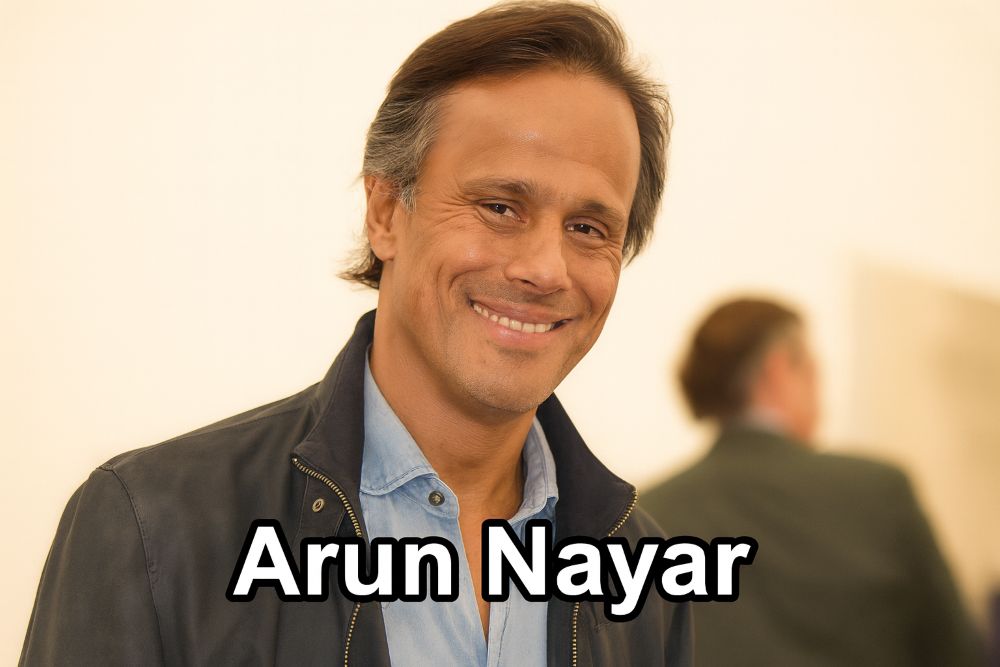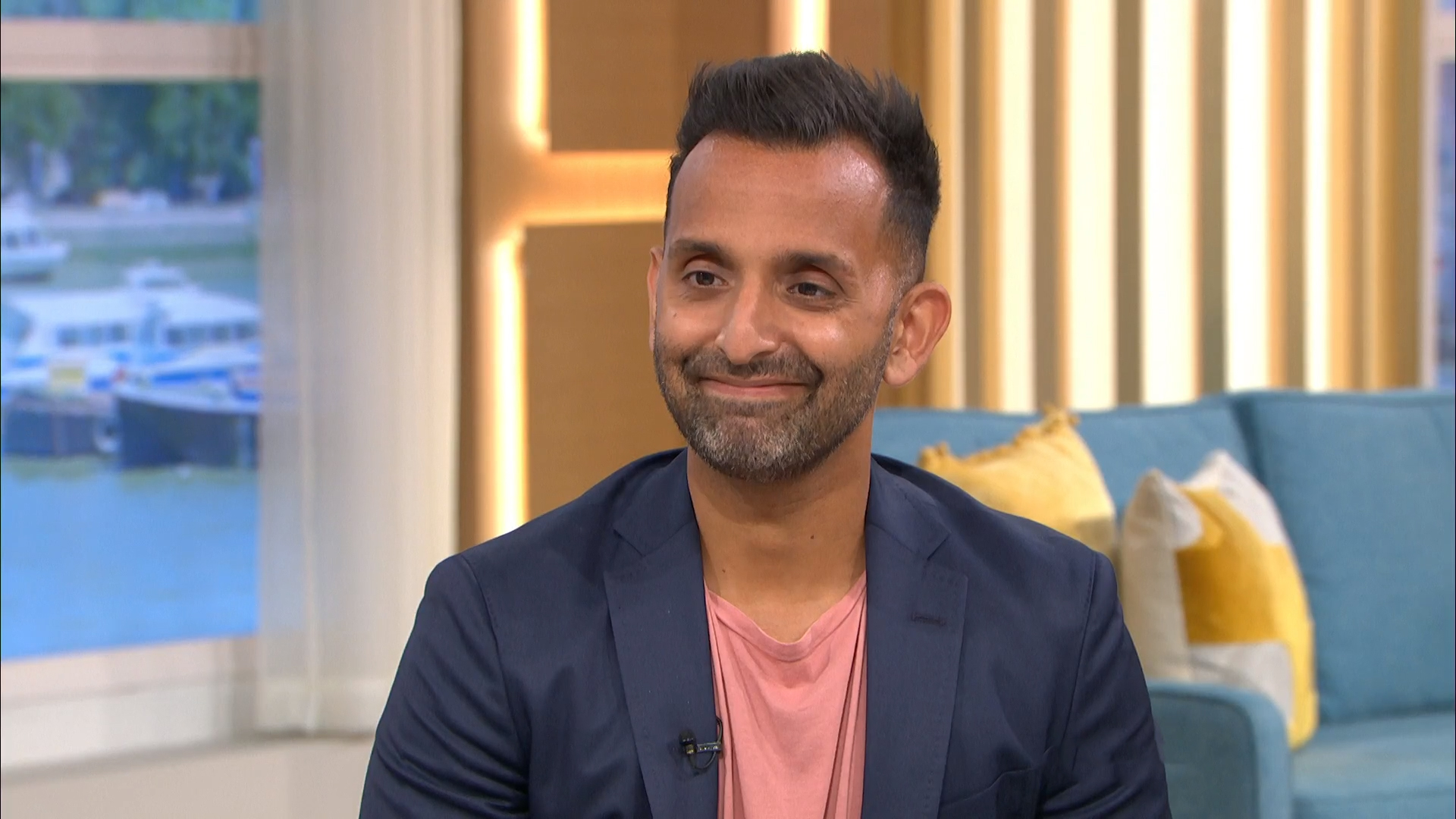Introduction: The Rise of a Renaissance Man
In an industry often criticized for its fleeting stardom and one-dimensional talents, Lance Gross is a remarkable exception – a true renaissance man whose career spans acting, modeling, photography, and entrepreneurship. With nearly two decades in the entertainment business, Gross has crafted a legacy that defies easy categorization, transitioning effortlessly between comedy and drama, television and film, performer and producer.
Born on July 8, 1981, in Oakland, California, Gross’s journey from the Bay Area to Hollywood stardom reads like a masterclass in perseverance. The son of an African American mother and Ghanaian immigrant father, his multicultural upbringing would later inform his nuanced approach to character development and storytelling. What makes Gross’s story particularly compelling is how he balanced conventional expectations with artistic ambition – excelling in athletics while nurturing his creative passions, earning a business-minded education while secretly dreaming of the stage.
Gross represents a new generation of Black leading men who refuse to be pigeonholed. Unlike many of his contemporaries who found themselves typecast, he has deliberately sought roles that showcase his range – from the lovable everyman in Tyler Perry’s House of Payne to intense dramatic performances in films like The Last Fall. This strategic career management speaks to both his artistic integrity and business acumen, qualities that have ensured his longevity in an industry notorious for short-lived success.
Beyond his professional achievements, Gross has emerged as something increasingly rare in Hollywood – a role model. His stable family life (married to Rebecca Jefferson since 2015 with two children), philanthropic work with HBCUs and youth organizations, and vocal advocacy for mental health awareness present a counter-narrative to the stereotypical Hollywood playboy image. In an era where celebrity culture often celebrates controversy, Gross’s measured approach to fame offers a refreshing alternative.
This comprehensive profile will explore how Gross built his career brick by brick, examining his formative years, breakthrough moments, artistic evolution, and the principles that guide both his professional choices and personal life. From his early days hustling for roles to his current position as an established star with production ambitions, Gross’s journey offers valuable insights for aspiring artists and entertainment professionals alike.
Early Life and Education: The Making of an Artist-Athlete
The foundation of Lance Gross’s success was laid in Oakland, California, where he grew up immersed in the city’s rich cultural tapestry. His neighborhood, a melting pot of African American and immigrant communities, provided early lessons in diversity that would later inform his ability to connect with varied audiences. Gross, the son of a Ghanaian father and African American mother, navigated multiple cultural identities from childhood – an experience that cultivated the adaptability he would later demonstrate as an actor.
At Bonanza High School in Las Vegas, where his family relocated during his teenage years, Gross emerged as a standout athlete. His natural athleticism earned him recognition in track and field, particularly in sprinting events where his explosive speed made him a formidable competitor. This period of his life reveals an important facet of Gross’s character – his competitive spirit and discipline. The same work ethic that drove him to excel on the track would later fuel his acting career, proving that the performing arts demand athletic levels of dedication.
Interestingly, Gross’s artistic inclinations emerged alongside his athletic achievements. He participated in school plays and talent shows, displaying early signs of the charisma that would become his trademark. This duality – jock and performer – created some internal conflict. “I loved both worlds,” Gross later recalled in interviews, “but there was pressure to focus on sports because it seemed more practical.” His parents, particularly his Ghanaian father, initially viewed acting as an unstable career path, preferring their son pursue more conventional professions.
The turning point came when Gross enrolled at Howard University, selecting a major that seemed like a compromise between practicality and passion: Radio, Television, and Film. Howard’s prestigious communications program offered theoretical grounding while allowing creative exploration. It was here that Gross truly discovered his calling, studying under influential professors like Professor Bay who recognized his potential. The HBCU environment proved transformative – the sense of community, the celebration of Black excellence, and the network of ambitious peers all contributed to Gross’s artistic awakening.
Beyond the classroom, Howard provided Gross with invaluable performance opportunities. Lance Gross He became active in campus theater productions, honing his craft in front of live audiences. These experiences built his confidence and technical skills, while also exposing him to the business side of entertainment through internships and networking events. His time at Howard (1999-2004) coincided with what many consider a golden age for HBCU arts programs, placing him at the center of a creative renaissance that would produce numerous entertainment industry leaders.
Graduating in 2004 with a degree that balanced creative and business elements, Gross faced the pivotal decision that defines every artist’s journey – whether to pursue the dream professionally. Unlike many of his peers who took corporate media jobs, he chose the riskier path, moving to Los Angeles to chase acting opportunities. This decision, made against some family advice, demonstrated the courage of his convictions – a trait that would serve him well in Hollywood’s competitive landscape.
Breakthrough Role: Calvin Payne and the Tyler Perry Connection

The year 2006 marked a watershed moment in Lance Gross’s career when he landed the role of Calvin Payne in Tyler Perry’s House of Payne. This wasn’t just another acting job – it represented the convergence of preparation and opportunity that defines breakthrough moments in entertainment. The sitcom, which would run for eight seasons and become one of the most successful Black-cast television shows of its era, provided Gross with the perfect platform to showcase his talents to a national audience.
Calvin Payne proved to be an ideal character for Gross’s skillset – a lovable underachiever whose seven-year college stint and comedic misadventures made him instantly relatable. Gross brought depth to what could have been a one-dimensional character, infusing Calvin with warmth and vulnerability that elevated the role beyond typical sitcom fare. His chemistry with co-stars like LaVan Davis (who played Curtis Payne) created some of the show’s most memorable moments, demonstrating Gross’s ability to play both comedy and heartfelt drama within the same scene.
The significance of working with Tyler Perry cannot be overstated. At a time when Black actors struggled to find substantive roles in mainstream Hollywood, Perry was creating his ecosystem that celebrated Black stories and talent. For Gross, this meant entering an environment where he could grow as an actor while being part of something culturally significant. “Tyler created opportunities where none existed before,” Gross noted in a 2010 interview. “Being part of that was bigger than any individual role.”
Financially, House of Payne provided stability rare for young actors. The show’s syndication success (it aired in over 90% of U.S. markets at its peak) meant Gross could focus on his craft without the constant scramble for work that plagues many performers. This stability allowed him to be selective about subsequent roles, avoiding the trap of typecasting that ensues many sitcom stars.
The NAACP Image Awards recognized Gross’s work on House of Payne with four consecutive wins for Outstanding Supporting Actor in a Comedy Series (2009-2012). These accolades not only validated his talent but also positioned him as a rising star in Black entertainment. Importantly, they demonstrated that Gross could excel in awards competition – a factor that would later open doors to more prestigious projects.
While House of Payne was his breakout, Gross simultaneously began building his film career through Perry’s cinematic universe. His debut in 2008’s Meet the Browns opposite Angela Bassett showcased his ability to transition between television and film. This versatility became a hallmark of his career, as he deliberately avoided being pigeonholed as just a sitcom actor. The film’s commercial success (it opened at #2 at the box office) proved Gross could draw audiences to theaters – valuable currency in Hollywood.
Behind the scenes, Gross used his time on House of Payne to learn the business of entertainment. He observed Perry’s multifaceted role as writer, director, and producer, absorbing lessons about creative control and ownership that would later influence his own career decisions. This education would prove invaluable as Gross eventually expanded into producing and developing his projects.
Perhaps most importantly, House of Payne gave Gross something every actor needs – credibility. In an industry where perception often dictates opportunity, having a hit show on his resume meant casting directors and producers took notice. This credibility would lead to offers beyond the Tyler Perry universe, allowing Gross to gradually expand his repertoire and audience.
Expanding His Horizons: Strategic Career Moves Post-House of Payne

As House of Payne approached its conclusion in 2012, Lance Gross faced the challenge familiar to all actors transitioning from a long-running series – how to avoid being permanently associated with a single role. His solution demonstrated remarkable strategic thinking: rather than chasing similar sitcom opportunities, he deliberately pursued projects that would showcase previously unseen dimensions of his talent.
The first major departure came with 2012’s The Last Fall, an independent drama where Gross played an NFL player struggling with life after football. The role required physical transformation (he trained extensively to achieve an athlete’s physique) and emotional depth far beyond his comedic work on television. Critics took notice, with The Hollywood Reporter praising his “raw, vulnerable performance that announces a serious dramatic actor.” The film’s success on the festival circuit proved Gross could carry a dramatic feature, expanding his perceived range within the industry.
That same year, Gross took on another unexpected challenge – joining the all-star cast of Lifetime’s Steel Magnolias remake as Sammy Desoto. Sharing the screen with heavyweights like Queen Latifah, Phylicia Rashad, and Jill Scott, Gross held his own in the emotionally charged drama. His casting in this traditionally white role (originally played by Dylan McDermott in the 1989 version) made a quiet but powerful statement about colorblind casting in Hollywood. The project demonstrated Gross’s willingness to take creative risks while working alongside established actresses who could elevate his performance.
Television remained an important medium for Gross, but his post-House of Payne choices reflected a desire for variety. In 2014, he joined NBC’s Crisis as Secret Service Agent Marcus Finley, marking his first foray into action-thrillers. Though the series was short-lived, it allowed Gross to explore physical, high-stakes drama and work with network television’s top production values. The role required weapons training and stunt work, further expanding his technical skills as an actor.
Gross’s next television venture took him into supernatural territory with Fox’s Sleepy Hollow (2015-2016). Daniel Reynolds, a mysterious figure connected to the show’s occult mythology, demonstrated versatility in genre acting. The role’s gothic overtones and period flashbacks showcased yet another facet of his abilities, proving he could navigate complex narrative structures and historical contexts.
Perhaps his most significant television role post-House of Payne came in Lee Daniels’ Star (2017-2019), where he played Maurice Jetter, a music executive navigating the cutthroat entertainment industry. The role allowed Gross to tap into his real-life understanding of the business side of show business, while also exploring morally ambiguous character territory. His chemistry with co-stars Queen Latifah and Jude Demorest created some of the series’ most compelling moments, further cementing his reputation as a reliable scene partner for top-tier talent.
Behind the camera, Gross began expanding his creative influence. He co-wrote and appeared in episodes of Tales (2017-2019), the anthology series exploring Black relationships, marking his first foray into writing. This transition from performer to storyteller reflected his growing confidence in shaping narratives rather than just interpreting them. The experience would prove foundational for his later production ventures.
Film roles during this period showed Gross carefully balancing commercial projects with passion pieces. He starred in the romantic comedy Dearly Beloved (2016), demonstrating he hadn’t abandoned his roots in lighter material, while also taking on grittier roles in films like The Sin Seer (2015). This balancing act maintained his mainstream appeal while allowing for artistic growth.
What emerges from examining Gross’s post-House of Payne career is a clear pattern of strategic diversification. Each role was selected not just for immediate gratification, but to build a mosaic of demonstrated abilities that would make him difficult to categorize and therefore more valuable in the industry. This approach, combined with his forays into writing and producing, reveals an artist thinking carefully about long-term sustainability in a notoriously fickle business.
Personal Life: The Family Man Behind the Fame
In an entertainment industry where personal lives often become tabloid fodder, Lance Gross has cultivated something increasingly rare – a stable, private family life that grounds his public persona. His 2015 marriage to Rebecca Jefferson, daughter of R&B legend Al B. Sure!, represented more than just a celebrity union; it marked the beginning of a partnership that would influence both his career trajectory and personal growth.
The couple’s relationship, which began years before their wedding, reflects Gross’s values regarding privacy and authenticity. Unlike many Hollywood pairs who leverage their relationships for media attention, Gross and Jefferson have maintained remarkable discretion, sharing glimpses of their life only on their terms. This approach has allowed them to build a genuine connection away from the spotlight’s glare, something Gross has cited as crucial to navigating fame’s pressures.
Fatherhood, which came with the birth of their two children, profoundly changed Gross’s perspective on career and legacy. In numerous interviews, he’s spoken about how becoming a parent shifted his priorities from personal ambition to providing and protecting. “It’s not about me anymore,” he told Essence in 2018. “Every role I take, every project I develop, I think about what it means for my children’s future.” This maturation is evident in his more recent career choices, which balance commercial viability with substantive storytelling.
Jefferson’s background in business (she’s an entrepreneur and fashion designer) has created a power-couple dynamic where both partners understand creative and commercial imperatives. Their collaborative approach extends beyond parenting into professional spheres, with Jefferson often advising on Gross’s career decisions and business ventures. This synergy between personal and professional has allowed Gross to approach his work with unusual stability for a Hollywood actor.
The family’s decision to maintain homes in both Los Angeles and Atlanta speaks to Gross’s strategic approach to career and lifestyle. While LA remains the entertainment industry’s epicenter, Atlanta’s emergence as “Black Hollywood” provides access to Tyler Perry’s studios and the thriving production scene while offering a more grounded environment for raising children. This geographic balance reflects Gross’s ability to navigate industry demands without sacrificing family priorities.
Gross’s social media presence offers carefully curated insights into his family life, striking a balance between accessibility and privacy. Posts celebrating milestones or family vacations present a relatable image of Black fatherhood and marriage, countering negative stereotypes while maintaining appropriate boundaries. This measured approach to fame has earned him respect from both fans and industry peers who value discretion.
The stability of Gross’s personal life has undoubtedly contributed to his professional longevity. Unlike many actors whose careers suffer from personal turmoil, Gross has avoided the scandals and drama that often derail Hollywood trajectories. His marriage and fatherhood have become sources of strength rather than distractions, allowing him to focus on craft and career development with unusual clarity.
Perhaps most importantly, Gross’s family life informs his artistic choices. As he’s matured as both an actor and a man, his performances have gained depth and authenticity, particularly in roles exploring fatherhood, marriage, and responsibility. This real-life experience lends credibility to his portrayals of complex relationships, making him a sought-after actor for projects requiring emotional truth.
Philanthropy and Community Engagement: Giving Back as Guiding Principle
Beyond his artistic achievements, Lance Gross has established himself as a committed philanthropist and community advocate, particularly in areas affecting Black youth and educational access. His philanthropic work isn’t performative celebrity activism but rather an extension of personal values shaped by his journey from Oakland to Howard University to Hollywood.
Education remains Gross’s primary philanthropic focus, with particular emphasis on supporting Historically Black Colleges and Universities (HBCUs). As a proud Howard alumnus, he frequently returns to campus as a speaker and mentor, offering students firsthand insights into navigating the entertainment industry. His involvement goes beyond ceremonial appearances – he’s worked closely with Howard’s Department of Theatre Arts to develop curriculum enhancements and internship pipelines to Hollywood. “HBCUs gave me my foundation,” Gross explained during a 2019 homecoming speech. “If I can help open doors for the next generation, that’s a real success.”
His advocacy extends to broader HBCU support through partnerships with organizations like the Thurgood Marshall College Fund. Gross has been instrumental in fundraising campaigns highlighting the continued relevance of Black higher education, particularly in creative fields where diversity remains a challenge. These efforts reflect his understanding that true progress requires institutional support, not just individual success stories.
Youth mentorship forms another pillar of Gross’s community work. He’s been actively involved with Big Brothers Big Sisters of America for over a decade, often speaking about how mentorship shaped his development. Unlike many celebrity ambassadors who lend only their names, Gross maintains regular contact with his “little brothers,” emphasizing long-term relationship building over photo opportunities. His approach to mentorship focuses on practical guidance – from college applications to career networking – that can create tangible opportunities.
Mental health awareness in the Black community has become an increasingly important cause for Gross. He’s partnered with organizations like The Boris Lawrence Henson Foundation to combat stigma around therapy and emotional wellness. This advocacy grew from personal experience, as he’s spoken openly about the psychological challenges of navigating Hollywood as a Black actor. “We have to normalize taking care of our minds the way we do our bodies,” Gross stated during a 2021 mental health panel. His willingness to discuss his struggles with industry pressures and imposter syndrome has made him an effective advocate for destigmatizing mental health care.
Gross’s philanthropic approach reflects his overall career philosophy – strategic, sustainable, and rooted in personal experience. Rather than scattering his efforts across numerous causes, he focuses on areas where his background and platform can create a meaningful impact. This targeted approach has allowed him to build substantive partnerships rather than superficial affiliations.
The business side of Gross’s philanthropy is equally noteworthy. He’s leveraged his entertainment industry connections to create fundraising opportunities, from celebrity basketball games to benefit concerts. These events serve dual purposes – raising both funds and awareness while demonstrating how entertainment professionals can mobilize their networks for social good.
Perhaps most impressively, Gross has integrated his philanthropic values into his professional work. Projects like Tales, which explored Black relationships with nuance and depth, and his production company’s developing slate reflect a commitment to storytelling that educates as it entertains. This alignment of artistic and social goals represents a model for how entertainers can use their platforms responsibly.
Gross’s community work hasn’t gone unrecognized. He’s received honors from organizations like the NAACP and National Urban League for his contributions beyond entertainment. These accolades, while appreciated, aren’t his motivation. As he told The Hollywood Reporter in 2020: “The real reward is seeing someone you mentored succeed, or a student get that internship because you made a call. That’s what lasts.”
Business Ventures and Production Ambitions: Building Beyond Acting
As Lance Gross’s career has progressed, he’s demonstrated increasing savvy in building business ventures that extend beyond performing. This entrepreneurial streak, evident since his Howard University days studying Radio, Television, and Film, has blossomed into a multifaceted approach to entertainment industry success that positions him for longevity beyond typical acting careers.





